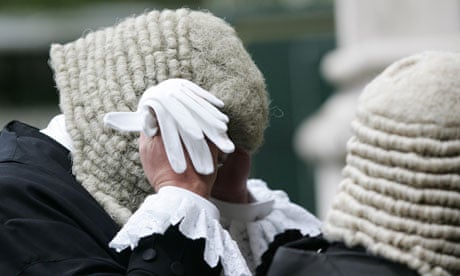The adage that justice depends on what the judge ate for breakfast may not be far from the truth, according to a study of more than a thousand court decisions.
The research, which examined judicial rulings by Israeli judges who presided over parole hearings in criminal cases, found that judges gave more lenient decisions at the start of the day and immediately after a scheduled break in court proceedings such as lunch. Jonathan Levav, associate professor of business at Columbia University, who co-authored the paper, said: "You are anywhere between two and six times as likely to be released if you're one of the first three prisoners considered versus the last three prisoners considered."
The authors of the peer-reviewed paper looked at more than 1,000 rulings made in 2009 by eight judges. They found that the likelihood of a favourable ruling peaked at the beginning of the day, steadily declining over time from a probability of about 65% to nearly zero, before spiking back up to about 65% after a break for a meal or snack.
Levav said the paper had implications for British judgments. He said: "What we're finding here is a basic psychological effect, and there's nothing different between the psychological effect on a British judge and an Israeli one."
The only other variables that influenced a judge's ruling were the number of times a prisoner had been to jail and the presence of a rehabilitation programme. Other factors, such as the severity of the prisoner's crime, prison time, sex and ethnicity tended not to exert an effect on the rulings, according to the paper, which is published in the Proceedings of the National Academy of Science.
The exact reason for the shift from parole approval to a "default" outcome of denial is not clear, but the paper speculates that breaks may replenish mental resources by providing "rest, improving mood or by increasing glucose levels in the body".
Levav said: "I don't measure the judge's mood. I don't measure the judge's glucose level. It's just a very consistent empirical regularity.
"It's a quite robust effect, and it really doesn't matter how you cut the data you get to reproduce it," he added.
